Metso’s pCAM plant: A sustainable solution for high-performance batteries
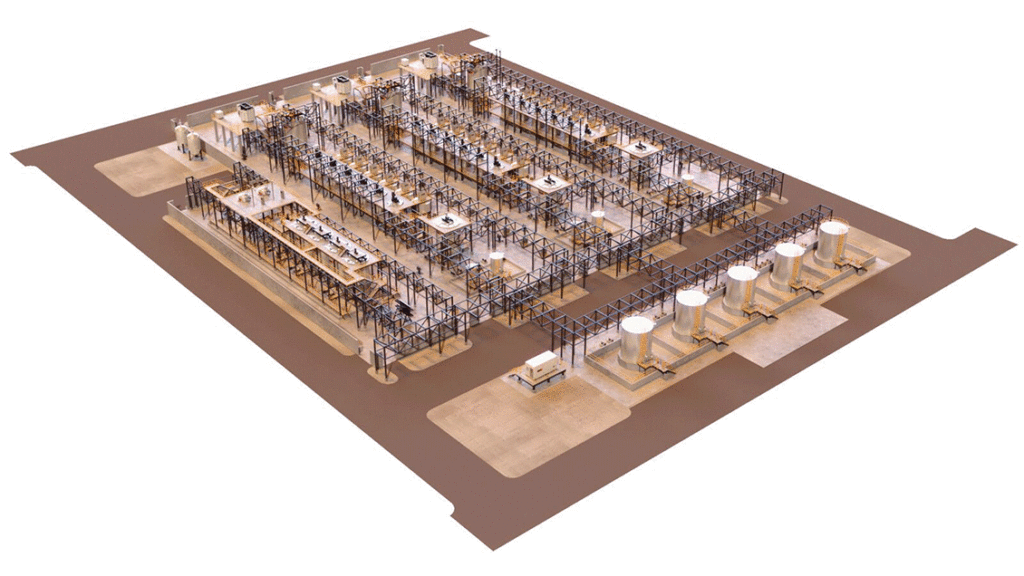
As demand for high-performance lithium-ion batteries soars, Metso’s pCAM plant offers a groundbreaking solution for efficient and sustainable precursor cathode active material (pCAM) production.
The surge in electric vehicles (EVs), driven by a focus on high-energy-density, fast-charging, and safe batteries, has amplified the demand for high-quality precursor materials. Industry forecasts suggest that by 2035, the demand for precursor cathode active material (pCAM) will rise by over 300%. This dramatic growth creates an urgent need for innovative solutions. Thankfully, Metso is prepared to help customers navigate this landscape with their latest innovation: the pCAM plant.
Backed by world-class research & and testing capabilities, the pCAM plant is a Planet Positive-certified integrated solution designed to manufacture pCAM, a critical component in lithium-ion battery production.
Metso’s journey toward the pCAM plant began in 2019, with the concept emerging from extensive lab work and pilot tests. After successful lab experiments, it was decided in 2020 to develop the plant at Metso’s Research Center in Pori, Finland – a leading pilot unit and testing facility. In 2023, the pCAM plant concept was proven to be successful, and the official launch followed in June 2024.
Centered around an energy-efficient OKTOP® pCAM reactor, PSI® 1000 particle size analyzer and pCAM process control, Metso’s pCAM plant integrates advanced technology and decades of know-how to ensure an energy-efficient and sustainable production process.
As operations grow to meet demand, the challenge of optimizing pCAM production is coupled with increasing environmental, social and governance (ESG) considerations. Metso, however, is driving a more responsible and sustainable energy transition with comprehensive coverage of the battery minerals production and recycling processes, helping customers meet both performance and sustainability targets.
However, not only is Metso a pioneer in the sustainability sector – in fact, Metso is the only western supplier for such comprehensive pCAM technology.
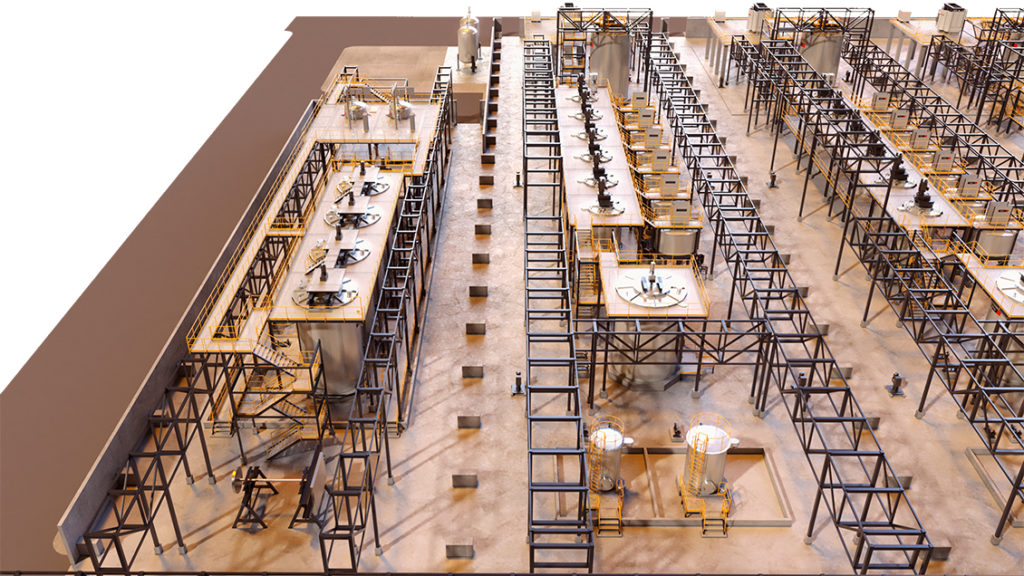
Industry’s most comprehensive scope of supply
It is widely known that Metso offers the industry’s most extensive range of solutions. Strengthened by robust proprietary technology, industry expertise and decades of insight, Metso is in a unique position that allows for significant improvements in both efficiency and sustainability of the entire lithium hydroxide value chain. It was this deep knowledge that inspired the development of the pCAM plant.
“A customer once told me that because pCAM is the most difficult part in the whole battery value chain, they wished there were Western companies who could provide the technology,” says Markus Koponen – Technology Manager, Precursors, Metso. “We already had the necessary technologies and an extensive pilot plant in Pori, so we knew we could bridge that gap and make it a reality.”
As an integrated solution for all co-precipitated chemistries, Metso’s technology offering covers the full range – from optimized raw materials selection to precipitated metal hydroxide precursor production. The core technologies include the OKTOP® pCAM reactor, thickeners, filters, and analyzers, forming the core of the process.
A key strength of Metso’s pCAM plant lies in its high level of automation, driven by Metso’s proprietary equipment. This automation not only boosts production efficiency but also enhances safety and sustainability. In addition, the modular design of the plant allows it to be tailored to specific customer needs, ensuring that each pCAM plant is a customized solution that directly suits its intended application.

The important role of pCAM in the battery supply chain
In the battery production process, the role of precursor cathode active material (pCAM) is critical, as it lays the foundation for the performance of lithium-ion batteries.
To support the customers in optimized raw material selection and process design, Metso leverages its in-house pCAM process development, testing and pilot facilities. By leveraging the dedicated testing capabilities in the Metso Research Centre in Pori, Metso can confidently engage with customers early on, ensuring that their requirements are met from concept to completion.
“In a pCAM plant, you precipitate precursor material, which is then lithiated and put into the battery. The pCAM reactor is essentially the first step in creating batteries for end-user application,” explains Markus. “Precipitation is probably the most challenging part of the battery value chain. The properties of precipitated pCAM particles determines the battery’s performance levels. To meet required properties, it is crucial to have correct precipitation reactor design. That’s why making high performance batteries is the first and most important step when you thinking about the whole battery value chain.”
Currently within the industry, you need to have spherical pCAM particles. To achieve that, operations need to have a good reactor to make different kind of product grades, as well as meet various properties such as high density and certain particle sizes. The pCAM reactor must be designed to meet these exacting standards, as any failure to do so cannot be corrected in later stages of the battery production process.
The pCAM plant’s process directly impacts the safety, performance, and features of the final battery, including whether it supports fast charging, extended range and more. By optimizing the precursor, Metso ensures the highest level of battery performance – right from the start.
Higher throughput and improved yield
Precursor materials are critical not only to the performance of lithium-ion batteries but also to their cost-efficiency. Securing a cost-effective raw material supply is essential as demand for high-performance batteries continues to surge. Metso’s pCAM plant is designed to meet this challenge, focusing on optimizing battery performance through innovative technology.
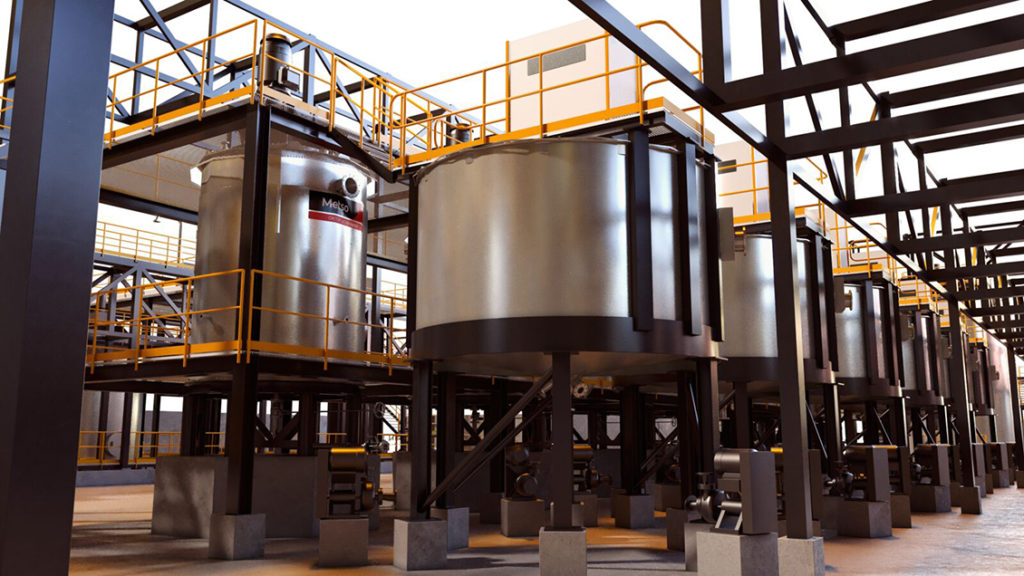
At the core of Metso’s pCAM plant is the OKTOP® reactor, engineered for higher throughput. Compared to other vendors, Metso’s reactor design allows for greater volume while maintaining a smaller footprint, making it ideal for batch, semi-batch, or continuous operations with just one reactor setup.
“The pCAM reactor is the heart of the whole battery process,” says Markus. “The purpose of the pCAM plant is to make precursor, and with reliable precipitation, we can build high performance batteries.”
This also leads to improved yield thanks to the high automation and digitalization levels due to advanced process control and on-line analyzers. These technologies work in tandem to ensure a high production rate and greater consistency in the final product while maintaining energy efficiency.
“It’s not just one element that makes the pCAM plant so effective,” Markus continues. “Each Metso technology contributes its own benefits, and together, they create an optimized plant. For example, the particle size, morphology, density and more comes from the pCAM reactor – all of which directly affect battery performance. A high-performance battery requires coarse, well-defined particles, and then you mix those to find the optimum density. You will need to optimize the anode material as well, so it needs to be well-balanced. This balance is essential to maximizing the battery’s performance.”
By addressing both throughput and yield, Metso’s pCAM plant ensures cost-efficient production without compromising on the quality of the battery’s precursor materials.
Decreased water and energy consumption, increased sustainability
Metso’s pCAM plants are Planet Positive-certified, emphasizing their sustainability through reduced energy and water consumption.
One major factor contributing to this sustainability is the OKTOP® pCAM reactor. Its larger design reduces the number of motors needed to meet capacity, significantly lowering electricity consumption. The reactor’s high throughput and smaller footprint – achieving, for example, a 37% reduction in the number of reactors required for 40,000 tpa production – further enhances efficiency and sustainability.
“Our innovative reactor technology and advanced process control are key enablers for more sustainable and economically viable pCAM production,” says Mikko. “Based on our Life Cycle Impact Assessment (LCIA), the Metso pCAM process offers significant sustainability advantages.”
These advantages include:
~52% reduction in water consumption potential
~27% reduction in electricity usage
~31% reduction in CO2 emissions
Another standout feature is Metso’s PF filtration technology, which drastically reduces water consumption.
“One of the things we’ve heard from customers is how our PF filtration technology has significantly decreased damming water usage,” says Markus. “The calculations, which have been tested and proved in actual trials, show savings of over 50% in demi water consumption – that is over half, it’s remarkable! The PF filter, and what we are manufacturing in Lappeenranta, are really great units.”
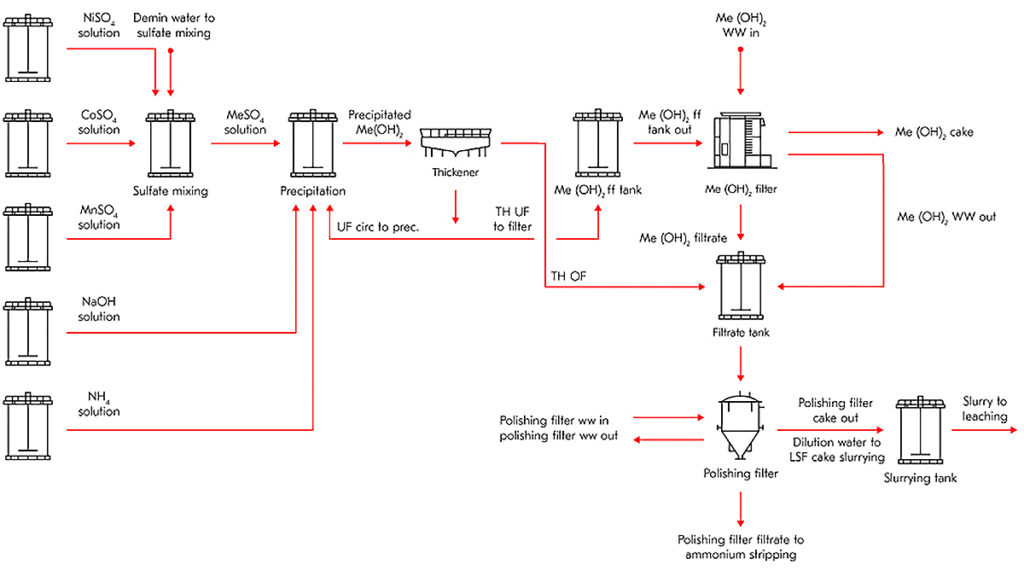
Metso also benefits from an almost closed loop within the product portfolio. By integrating battery black mass recycling into their portfolio, Metso can reintroduce materials recovered from black mass recycling into the precipitation step, further contributing to a circular economy.
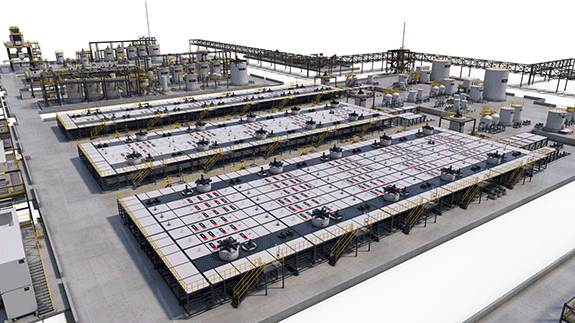
“When end users discard their batteries, we can use our black mass recycling plants to recover raw materials and feed them back into the production of new batteries,” Markus explains. “We’re currently conducting trials in Pori and are excited about the opportunity to cover the full value chain. Our ability to support customers across the entire process—from raw material selection to in-house testing, process design, and piloting with recovered materials—is a value-adding benefit.”
With sustainability at the forefront, Metso’s pCAM plants provide a responsible solution that helps customers meet both environmental and economic goals – all at the same time.
Partnering for the best battery future
As the global demand for batteries continues to surge, the need for advanced solutions like Metso’s pCAM plant is more crucial than ever.
“I’ve heard it said that if precipitating pCAM were easy, everyone would do it, and that couldn’t be truer,” says Markus. “It’s a specialized niche that requires the right expertise and technology—and we have both at Metso.”
Looking ahead, the pCAM plant has already garnered enthusiastic feedback from customers.
“Currently, we are involved in discussions with several pCAM producers in North America, Australia and Europe,” says Markus. The discussions have ranged from the delivery of complete plants to supplying certain key technology, like reactors and plant automation, for planned or existing plants. We have several customer projects and pilot campaigns on-going.”
As a trusted partner in battery minerals development, Metso offers a comprehensive production solution—from mine to battery materials and black mass recycling —along with world-class service and support.
From leading our industry to learning from our history, Metso’s holistic approach ensures that customers are equipped to meet the challenges of the digital world. That’s why, together, we are the partner for positive change.

Comments